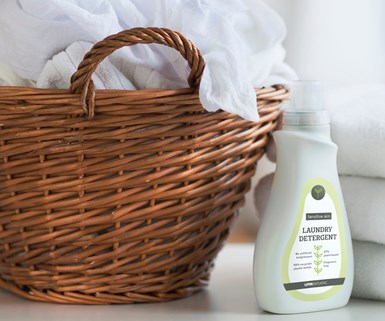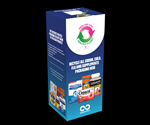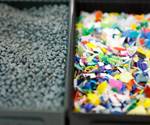Recycling: New Developments in Recycled Content Labels
Avery Dennison and Sabic are working on a recycled polypropylene (rPP) label; UPM Raflatac announces new recycled content film labels.
There have been a couple new developments in recycled content labels. Avery Dennison is working with Sabic on supplying a recycled polypropylene (rPP) label material. The company says that both brand owners’ requirements and regulatory changes will be addressed by this rPP label material.

The pilot project will make this material available during 2020.
PP labels are widely used in food, cosmetics, and a variety of other segments, so improvements in this area can make a major contribution to sustainability, Avery Dennison stated. The new material is food-contact approved, and it reportedly offers the same properties as standard PP film.
The new material is made via feedstock recycling (pyrolysis) of mixed post-consumer plastics waste. In contrast to mechanically recycled materials, the chemical recycling process used to make rPP reportedly means it has the same characteristics as conventional material.
The pilot project will make this material available during 2020.
The full value chain - the film supplier, Avery Dennison, the converter, and brand owner - need to be ISCC chain-of-custody-accredited to use resin from Sabic to make the rPP, so that the material is certified as a ‘circular polymer solution’.
New PCR Labels
UPM Raflatac recently released its PE PCR white TC 85 label material, made with 30% post-consumer recycled (PCR) plastic from household waste and a minimum of 55% post-industrial (PIR) plastic. PE PCR white TC 85 is available in Europe for the home and personal care markets.

New UPM Raflatac PE PCR white TC 85 label material.
UPM Raflatac says that the PE PCR white TC 85 can be recycled in standard plastic recycling streams, and gives applications an authentic look that reflects sustainability.
As one of the signatories to the Ellen MacArthur Foundation’s New Plastic Economy Global Commitment, UPM Raflatac is committed to offering labeling solutions with recycled content that are suitable for a variety of end-uses. Legislation in the European Union sets pressure to increase recycling to cover more than 50% of the EU’s plastic waste and make all plastic packaging reusable or recyclable by 2030.
Related Content
-
A Recycling Plant, Renewed
Reinvention is essential at Capital Polymers, a toll recycler that has completely transformed its operation in a short period of time.
-
Avoid Four Common Traps In Granulation
Today, more than ever, granulation is an important step in the total production process. Our expert explains a few of the many common traps to avoid when thinking about granulators
-
Foam-Core Multilayer Blow Molding: How It’s Done
Learn here how to take advantage of new lightweighting and recycle utilization opportunities in consumer packaging, thanks to a collaboration of leaders in microcellular foaming and multilayer head design.
















